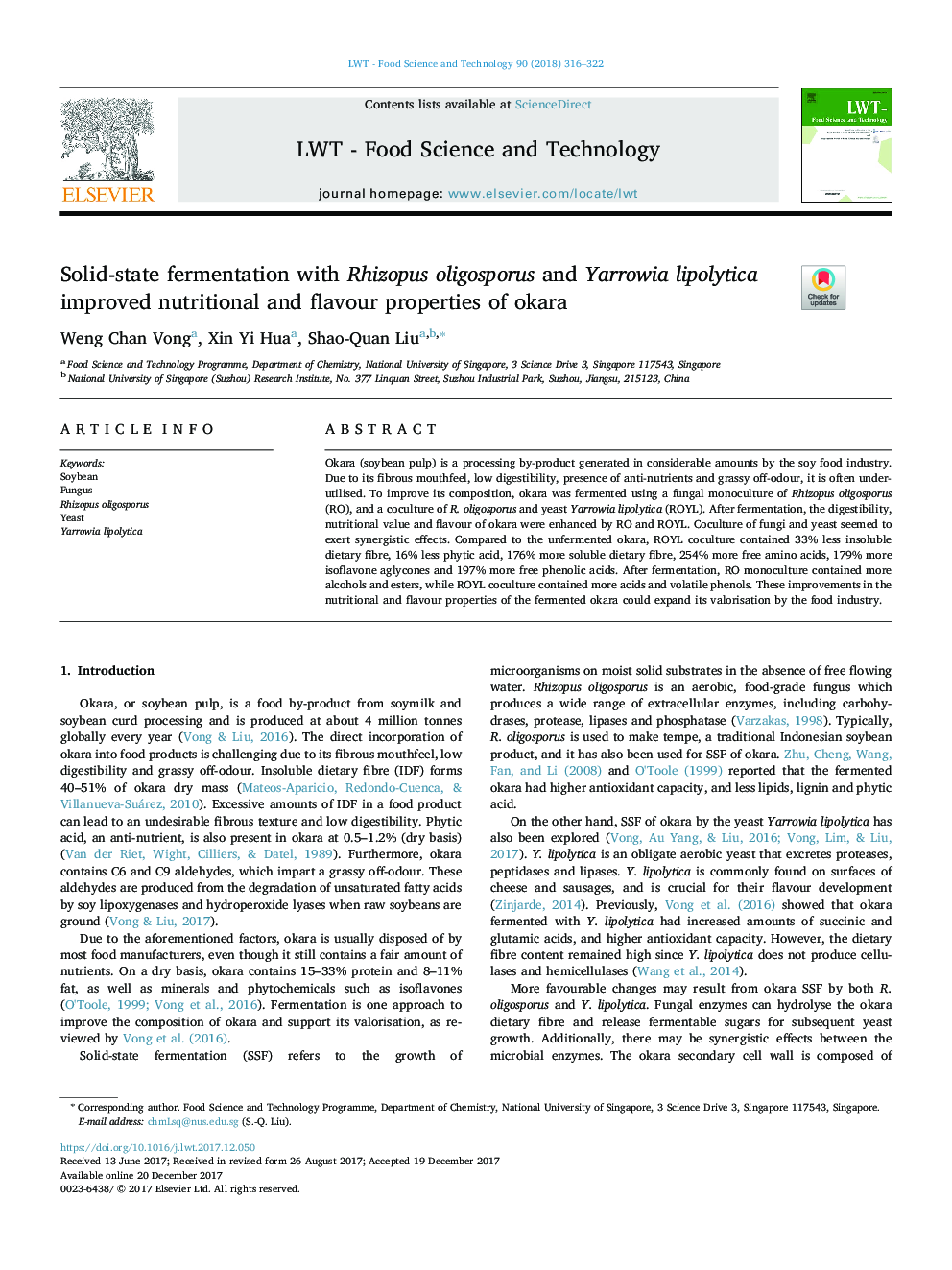| Article ID | Journal | Published Year | Pages | File Type |
|---|---|---|---|---|
| 8891612 | LWT - Food Science and Technology | 2018 | 7 Pages |
Abstract
Okara (soybean pulp) is a processing by-product generated in considerable amounts by the soy food industry. Due to its fibrous mouthfeel, low digestibility, presence of anti-nutrients and grassy off-odour, it is often under-utilised. To improve its composition, okara was fermented using a fungal monoculture of Rhizopus oligosporus (RO), and a coculture of R. oligosporus and yeast Yarrowia lipolytica (ROYL). After fermentation, the digestibility, nutritional value and flavour of okara were enhanced by RO and ROYL. Coculture of fungi and yeast seemed to exert synergistic effects. Compared to the unfermented okara, ROYL coculture contained 33% less insoluble dietary fibre, 16% less phytic acid, 176% more soluble dietary fibre, 254% more free amino acids, 179% more isoflavone aglycones and 197% more free phenolic acids. After fermentation, RO monoculture contained more alcohols and esters, while ROYL coculture contained more acids and volatile phenols. These improvements in the nutritional and flavour properties of the fermented okara could expand its valorisation by the food industry.
Related Topics
Life Sciences
Agricultural and Biological Sciences
Food Science
Authors
Weng Chan Vong, Xin Yi Hua, Shao-Quan Liu,
